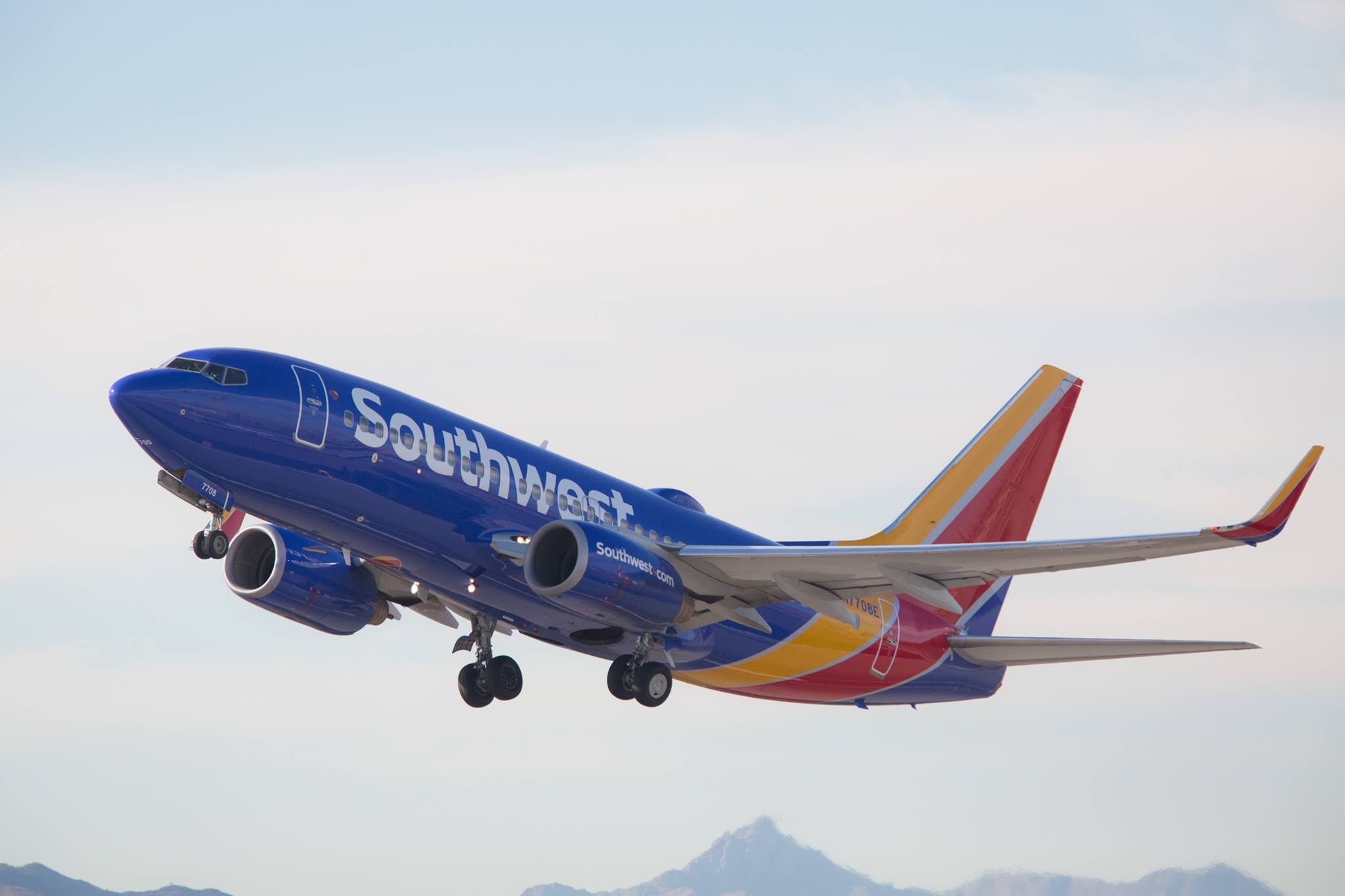It looks like Virgin America will be the winner in its 3-way battle with Southwest Airlines (LUV 1.48%) and Delta Air Lines (DAL 2.39%) to acquire American Airlines' (AAL 4.06%) two gates at Dallas Love Field.

Virgin America will be expanding in Dallas starting later this year. Photo: Virgin America
While there is still plenty of posturing occurring, the Department of Justice wants the gates to go to Virgin America, and so that's all but certain to happen. Virgin America will remain a small player in the Dallas-Fort Worth area, but its premium, high-tech feel and focus on top business markets will help it punch above its weight from a competitive perspective.
The fight for gate space
In order to receive antitrust approval for its merger with US Airways, American agreed to divest its two gates at Dallas Love Field. The Department of Justice has the ability to determine which other airlines are qualified to bid based on the goal of promoting competition.
Dallas Love Field has become a strategic battleground for Virgin America, Southwest, and Delta because of its proximity to downtown Dallas. American Airlines dominates the larger Dallas-Fort Worth International Airport, and so it is very difficult for other airlines to be competitive there. Love Field's convenience is an offsetting factor that could attract local customers.
Virgin America, Southwest, and Delta all proposed using American's Love Field gates to offer nonstop flights to some of the largest U.S. cities. However, Virgin America had the strongest argument for gaining access to American's gates at Love Field.
Delta intended to use the Love Field gates primarily to duplicate flights it operates at DFW. This meant that awarding the gates to Delta would not have had a meaningful impact on competition. Meanwhile, Southwest already controls 16 of Love Field's gates, and it's hard to justify freezing out competitors while allowing Southwest to control 90% of the airport's gate space.

Delta Air Lines has been lobbying hard to get gate access at Love Field. Photo: The Motley Fool
Thus, it wasn't surprising to see Virgin America get the nod from the Department of Justice. The carrier plans to move its current flights at DFW (three round-trips each to San Francisco and Los Angeles) to Love Field in October. It will also add four daily round-trips to New York's LaGuardia Airport and three daily round-trips to Washington's Reagan National Airport in October.
Next year, Virgin America will start flying twice daily to Chicago O'Hare and add a fourth daily flight for the San Francisco, Los Angeles, and Reagan National routes. This will result in a net increase of 12 flights to five of the top business markets in the U.S.
Smoke or fire?
Virgin America appears to be confident that it has the right to use the Love Field gates, because it began selling tickets for its new Love Field routes. However, Delta and Southwest haven't given up just yet.
The intrigue intensified in the last week, as a consulting firm retained by the city of Dallas -- which owns Love Field -- found that Southwest Airlines would be a better choice to receive the gates. A variety of hearings in the Dallas City Council on the subject are ongoing.

Consultants hired by the city of Dallas recommended that Southwest get the extra Love Field gates. Photo: The Motley Fool
While there's a lot of smoke here, there's no fire. Dallas doesn't really have any legal cause to block American Airlines from subleasing its gates to Virgin America -- something that American is perfectly willing to do. The wrangling may take a while to die down, but when the smoke clears, Virgin America is virtually certain to control the last two Love Field gates.
What does it mean?
The Dallas-Fort Worth area is an enormous travel market, which is home to American Airlines' largest hub (at DFW) and a large Southwest Airlines focus city (at Love Field). As such, the addition of 12 new Virgin America flights can only have a limited effect on the market as a whole.
However, for the five routes that Virgin America will serve at Love Field, its expansion will have a noticeable impact on the competitive balance. For example, today American Airlines offers the only nonstop service from the Dallas-Fort Worth area to Reagan National Airport, which is the preferred airport for most travel to and from Washington, D.C. It offers about 10-11 daily flights on the route.

American Airlines will face a big step-up in competition on a few key routes. Photo: American Airlines
By November, American will have not one, but two competitors on this route: Southwest also plans to start flying from Love Field to Reagan Airport this fall. This will increase capacity on the route by as much as 75%, which will naturally push fares down.
In addition to having more itinerary options, travelers will also have more choices from a service perspective. Southwest still has a barebones feel, with its all-economy cabin, no meal service, and "open seating". Business travelers may find Virgin America to be more enticing as it has first class and premium economy sections, more in-flight entertainment, and buy-onboard food.
Foolish wrap
Virgin America is just about cleared for takeoff at Love Field in Dallas. Its expansion at Love Field over the next year or so will provide improved service from Dallas to 5 key markets: San Francisco, Los Angeles, New York, Washington, and Chicago. Virgin America will attempt to use its reputation for good service and its convenient location at Love Field to win customers away from American Airlines.
Virgin America's small size makes it more of a nuisance than a real threat to American. However, in combination with Southwest's concurrent expansion in Dallas, low-cost carrier service at Love Field will become a more viable alternative to American's massive hub operation at DFW.








